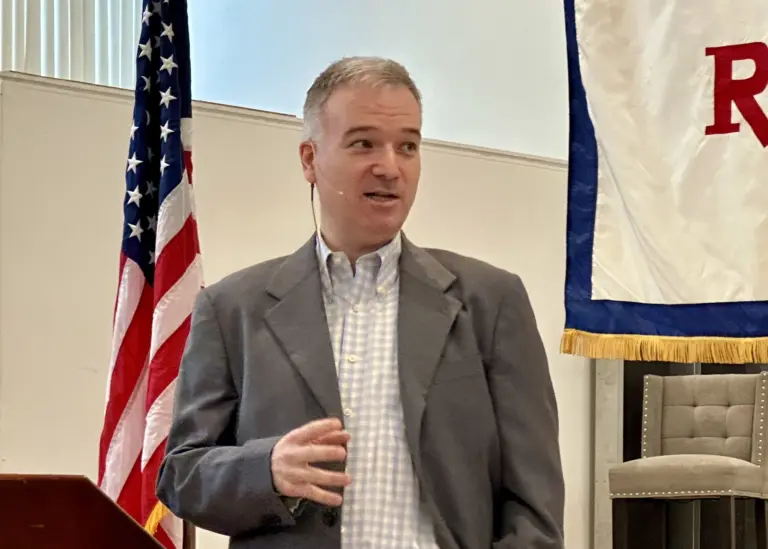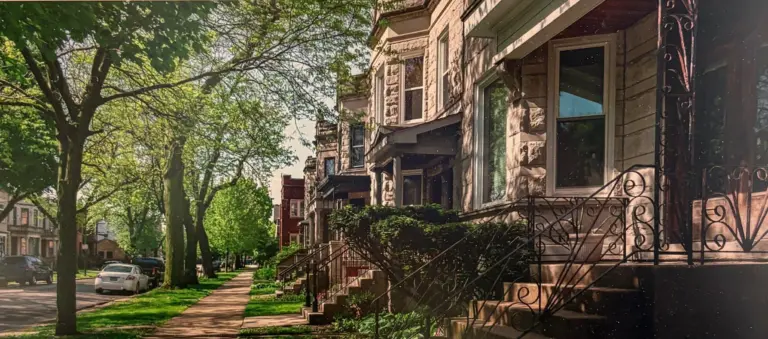By Carolyn Paletta
Greenwich is facing a garbage problem. Waste removal fees are increasing as the state struggles to meet demand with an aging incinerator. Recycling removal, which used to be free for the town, will as of this year require a per-ton tip fee that adds an annual expense of nearly $1 million.
To combat these rising costs, First Selectman Fred Camillo has proposed the adoption of a Pay As You Throw (PAYT) system for garbage disposal in Greenwich. In a PAYT system, residents pay the town for each bag of trash they dispose of, instead of paying a flat-rate tax increase. Similar to how people pay for electricity or gas, the cost of waste disposal is directly proportional to the output of the household.
“This is the only option that gives you personal control over your costs,” Camillo said. “The less garbage you have, the less you pay.”
Under a PAYT system, the town would sell specially marked garbage bags at grocery stores, gas stations and other local distributors, and residents would purchase these bags at a rate ranging from $1.25 for 13-gallon bags to $2 for 33-gallon bags. Only trash disposed of in these specially marked bags will be permitted to be processed at the town’s transfer station.
Through this system, the town gains revenue to subsidize recycling costs and reduces the overall tonnage of waste production as residents become more conscious of the amount of garbage that they produce.
“Rather than just look for a money grab, I want to promote this as both an economically and environmentally sound policy,” Castillo said.
PAYT is not a new system. It has been studied and implemented in municipalities across the United States for the last two decades, and it is already being used by 556 communities in New England alone. According to statistics provided by the Department of Energy and Environmental Protection, every community that has adopted a PAYT system has reduced its trash output by 40 to 60 percent, without exception.
“That has happened in every single town that it’s been tried,” Camillo said. “So it’s not like we’re guessing and hoping it will happen, we know it’s going to happen.”
Greenwich is developing its PAYT system in collaboration with WasteZero, a benefit company that has helped hundreds of towns implement PAYT since its foundation in 1991. Kristen Brown, the company’s Vice President of Waste Production Strategy, explains that putting the fee into the cost of the garbage bags gives residents a direct motivation to reduce their trash output.
“For families that are busy, recycling is the last thing that they want to do, and so they don’t,” Brown said. “They think ‘I’ll recycle better tomorrow’ or ‘I’ll start composting tomorrow’, and tomorrow never comes. I’ve been in trash for 30 years, and PAYT is the one standard, go-to method that changes behavior significantly.”
While this behavior change has been proven to decrease waste output and cost dramatically, many Greenwich residents are already expressing concerns about how the new system will impact their lives. Brown said that it is typical for residents to be wary of the system prior to its implementation, but that in every case that WasteZero has worked with, towns achieve 100% complicity after a four to six-week transition period.
“There is a huge big picture here, and in reality do residents want to have unlimited disposal and burn resources that could be diverted into other streams?” Brown said. “From a carbon perspective, the reduction in Greenwich is equal to the effect of placing a solar panel on every single structure in town. It is hands down the best thing to do, and if you do it, everyone will like it, I truly believe that.”
If not addressed, Greenwich’s waste and recycling costs will increase by $1.2 million by 2021 and are projected to continue rising in the coming years. In concert with new conservation programs, such as a free textile recycling service, PAYT is intended to negate the need for a tax increase, encourage recycling and reduce the amount of money that the town needs to spend on waste removal.
“There is an economic incentive as well as an environmental one, so it makes all the sense in the world, and that’s why I am not backing off of it,” Camillo said.
Camillo knows that communication and education is going to be a core tenet of the successful implementation of PAYT in Greenwich. While the program was originally proposed to go into effect on October 21 of this year, Camillo has decided to push back the start date to ensure that he has time to meet with residents and address their concerns.
“These questions are legitimate, and I had just as many questions when I first heard of this concept,” Camillo said. “We’re going to take our time and go around the town to address the concerns and answer the questions, but this is certainly the way of the future and we are excited.”
Camillo will be holding public forums throughout the year to address the public’s questions and concerns about PAYT. The town government will vote on whether to adopt PAYT later this year, and Camillo hopes to put the system into effect in 2021.



